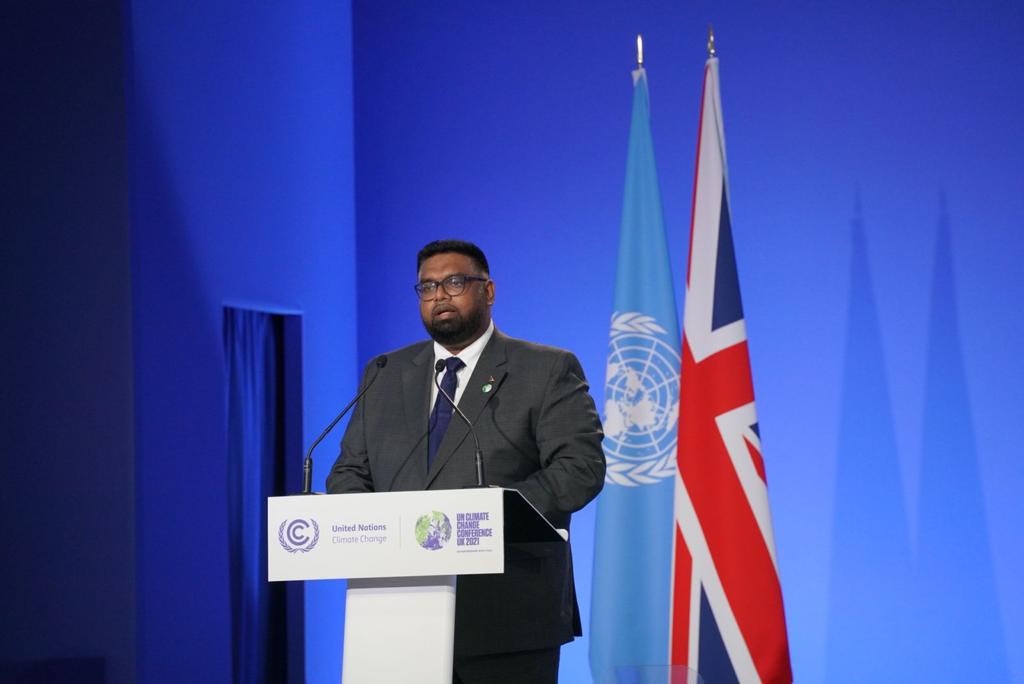Civil society group Article 13 has issued a call for the government to ban the exportation of logs and provide full disclosure on foreign companies working in Guyana’s forestry sector.
“We are aware of the distinctions between commercial logging for export, for local use and for clearing to facilitate infrastructure and other developmental purposes. Article 13 demands full information on all activities, including planned activities, of foreign deforesters operating in Guyana,” the group said, while making a distinction between commercial deforesters and local operators who satisfy the local demand for housing and construction. “The people of Guyana deserve to know the present rate and quantity of forest degradation, including a breakdown delineating foreign versus domestic usage. In this regard, Article 13 holds that Guyana must immediately ban all exports of logs,” it added.
The call was made in a statement issued by Article 13 spokespersons Ramon Gaskin, Yog Mahadeo and Jonathan Yearwood on Saturday in wake of President Irfaan Ali’s recent address to the United Nations Climate Change Summit (COP26) in Scotland. It said while Ali’s calls during his presentation were laudable, they do not reflect the reality of the situation on the ground in Guyana.
During his address to world leaders at COP26, held in Glasgow, Scotland, Ali committed to a 70% reduction in greenhouse gases by 2030 and also called for the removal of subsidies for the fossil fuel industry. Additionally, Guyana signed on to the Glasgow Declaration on Forests in which it signaled its commitment to eliminate deforestation to protect its existing forests.
Article 13, which was launched in September to push for better governance, accountability and the inclusion of the citizenry in making decisions for national development, lauded the President’s position on the impact of and focus on climate change and its effects, including the increasing threat from rising sea levels, among other things.
“The President’s reminder would therefore have resonated across both the developed and developing countries, and particularly among low-lying countries, such as Guyana, in which huge swathes of their territory face an existential threat. Unfortunately, the President’s lofty ideals on the crisis of Climate Change and the Environment have not translated into policies and practices. Recent media reports indicate that his Administration has reopened the door for the return of Asian logging companies and Canadian interests in gold mining. And that Guyana is opening up more territory for gold mining which, outside of a strictly enforced regime, can do grave harm to the environment, as a result of uncontrolled land clearing and the use of mercury,” the group, however, noted in its statement.
Additionally, the group criticised Ali for his simultaneous declaration of support for the removal of subsidies from fossil fuel production while the government continues to hand out and defend the handing out of concessions to oil companies operating here.
While boasting that Guyana’s forests are “almost the size of England and Scotland”, President Ali, the group said, failed to inform the gathering that in the case of one of more than a dozen Petroleum Agreements entered into with oil companies, a group of two American and one Chinese company has been granted exploration and production rights over an acreage of territorial waters which exceeds the entire 83,000 sq. miles of the land territory of Guyana. It noted that this inconsistency with the laws of Guyana, common sense, and sanity is aggravated by its permission of flaring and weak regard for responsible environmental laws and management.
Moreover, Article 13 pointed to the US$750 million Amaila Falls Hydro Project and the US$900 million Wales Gas to Shore Project, as announced by the government, and questioned the reasons behind them being shrouded in secrecy. It also said that the lack of consultation has been appalling.
“Successive Administrations have had difficulty in comprehending the need for inclusion, consultation, and transparency on large projects. Article 13 is deeply concerned that in the absence of such consultations, Guyana can suffer the fate of the Skeldon Project, the economic, financial and social consequences of which are still being felt. The only difference this time around is that if these projects were ever to materialise, the costs to the country will be unmanageable and will have to be borne by future generations,” the group said.






